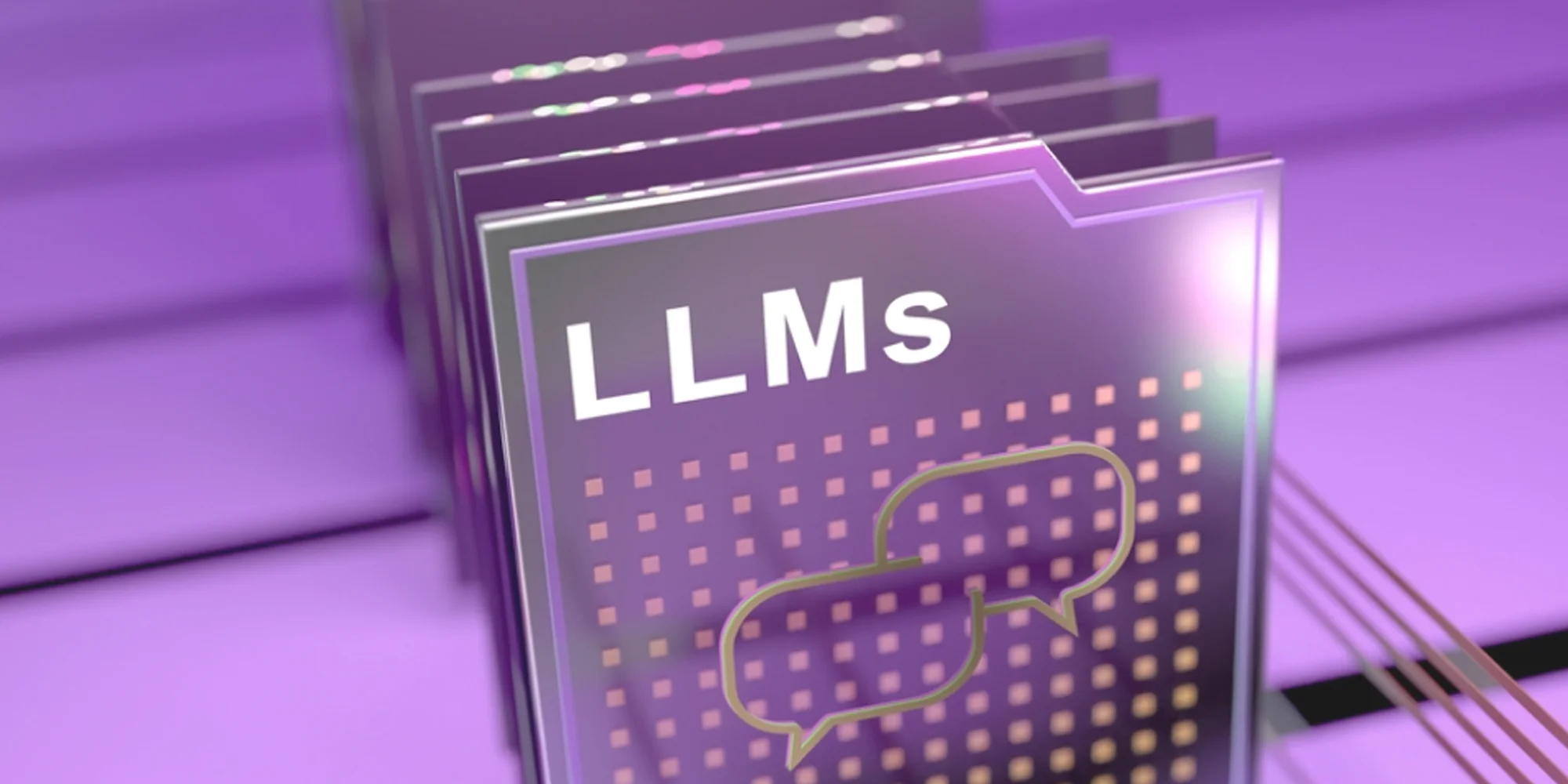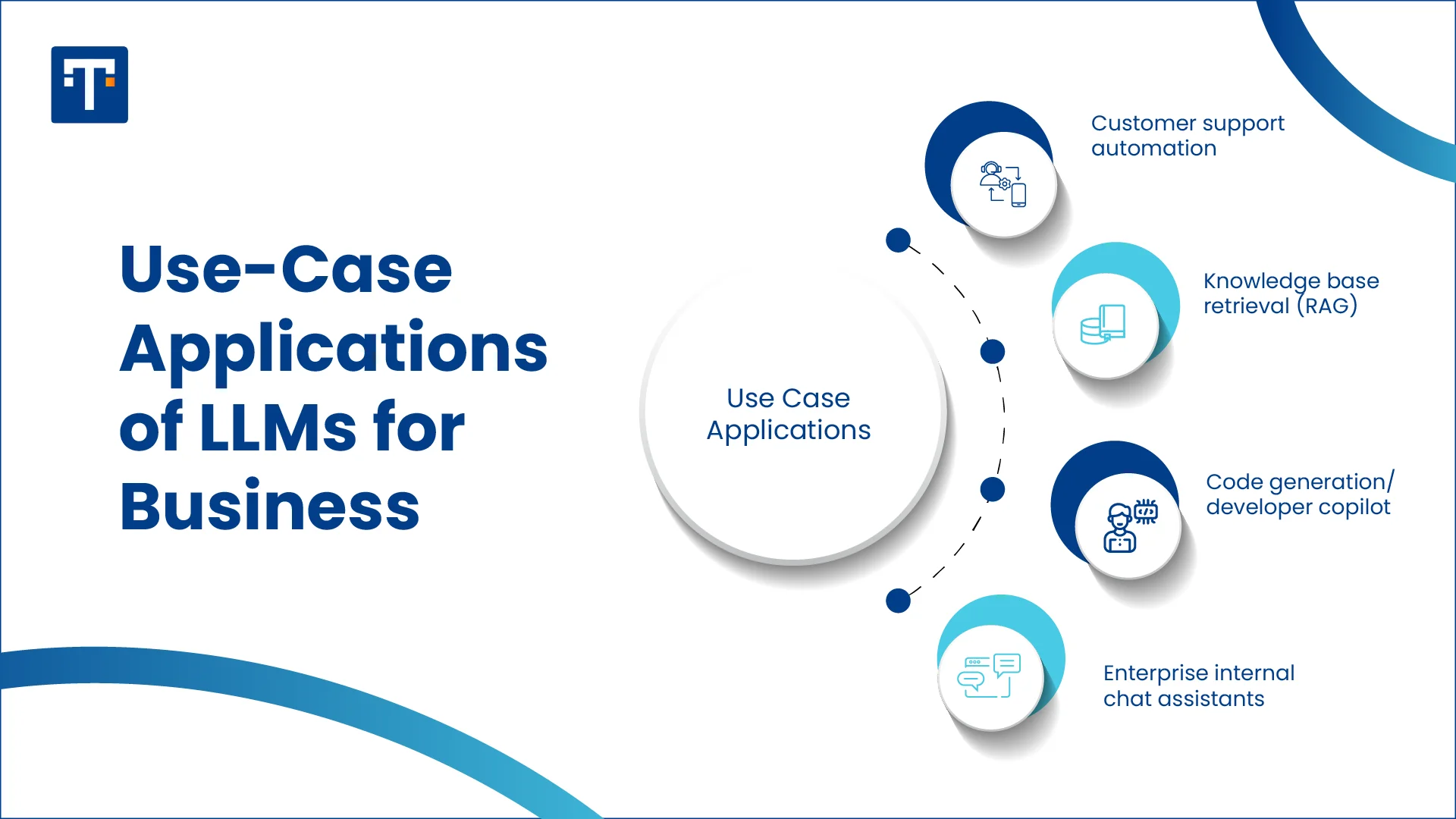Necessary Always Active
Necessary cookies are required to enable the basic features of this site, such as providing secure log-in or adjusting your consent preferences. These cookies do not store any personally identifiable data.
|
||||||
|
||||||
|
||||||
|

Large Language Models (LLMs) are advanced AI systems trained on massive volumes of text data to understand, generate, and manipulate human language. They power everything from AI in customer support chatbots to developer copilots and internal knowledge assistants. Businesses today are increasingly evaluating the Best LLM for Business across multiple enterprise applications to support automation, productivity, and innovation.
The effectiveness of modern LLMs, such as GPT, Claude, and Gemini, is built on transformer architecture. It is based on the self-attention mechanism introduced in the research paper “Attention Is All You Need” by Vaswani et al. Transformers process all parts of a prompt simultaneously, improving reasoning, efficiency, and scalability. In this article, we will explore the Best LLM for Business planning, business strategy, and operational success in 2025 based on real-world performance.
Large language models are the engine behind today’s top business AI tools for code generation, live chats, workflow automation, and intelligent document search.
Whether your goals include accuracy, privacy, or scaling, these are leading candidates for the Best LLMs for Business in 2025.
GPT-4o is a multimodal model capable of processing text, images, and audio with fast reasoning and real-time responses. Its integration into ChatGPT Business plan enables enterprise copilots, virtual assistants, and AI-powered service agents. GPT-4o is also a strong option for organizations seeking the Best LLM for Business strategy because of its versatile deployment and ecosystem support including REST APIs, Python, JavaScript, TypeScript, and C#.
Claude Opus 4 is recognized as one of the Best LLM for Business 2025 solutions for regulated environments requiring transparency and safe conversational AI in customer success support. It has minimal hallucination and a 200K token window, enabling accurate document processing. It is frequently evaluated among answers to the question: Which enterprise LLMs perform best in accuracy testing?
Gemini 2.5 Pro and Flash are multimodal enterprise models designed for advanced, context-aware reasoning. They excel in document-heavy workflows, making them ideal for LLM enterprise use cases in legal, research, logistics, and analytics. Gemini deeply integrates with Google Workspace and supports development through Vertex AI and Google AI Studio.
Mistral AI models such as the Small 3/3.1/3.2 and Codestral Mamba are high-performing open-weight LLMs that rival GPT-4 and Claude at 10x less cost per token. These models are ideal for businesses scaling internal copilots, RAG pipelines, or low-latency AI assistants. They are accessible via API and deployable on-premises or on major cloud platforms such as Azure and GCP. Supported frameworks by Mistral AI include PyTorch, LlamaIndex, Hugging Face Transformers, and Ollama.
LLaMA 4 is a top open-source option for businesses that prioritize full control and fine-tuning LLMs for enterprise on-premise over SaaS deployment. The latest models (Scout and Maverick) offer up to 1M token context windows and operate on a mixture-of-experts architecture for performance efficiency. LLaMA 4 supports LangChain, Hugging Face, PyTorch, and Open WebUI for enterprise-grade customization.It is an excellent choice in Best LLM for Business analysis scenarios that involve private data, long-context retrieval, and compliance.

Your choice of the best large language model for business depends on your intended use case. Here is a comparison of our top LLMs for enterprise use in 2025:
The real-time chat capabilities of GPT-4o are used in platforms like Instacart’s AI shopping assistant. Claude Opus 4 is known for tone control and accuracy, which makes it a better LLM for healthcare and fintech businesses. For Gemini 2.5, you can integrate it with Google tools such as Gmail for ticket resolution and FAQ replies across omnichannel support. Mistral’s bulk inquiry routing feature can power AI-driven ticket sorters in customer help desks, while LLaMA 4 can be used for private bots for internal HR or IT support on secure servers.
Gemini 2.5 is used in document-heavy fields such as legal and research for its IM token context window. The accuracy of Claude 4 makes it ideal for audit in compliance teams or generating summaries from large datasets. Mistral is for startups building RAG systems for internal wikis or sales playbooks on a low budget. Law firms or government agencies can use LLaMA 4 for private and offline access to confidential databases. GPT-4o on platforms like Notion supports searchable documentation.
An important application of GPT-4o is powering GitHub Copilot Chat for code completions and debugging support across languages. Claude 4 LLMs are used by enterprise development teams to refactor legacy code and explain complex functions in plain English. Gemini 2.5 is used by DevOps teams for CI/CD automation, and by GCP-native teams for generating test cases. For Mistral AI, Codestral supports multilingual development environments with fast inline suggestions. LLaMA 4 can be fine-tuned to build domain-specific AI copilots for regulated industries.
Legal and HR departments can use Claude Opus 4 to power AI assistants that process PDF contracts and document reports. Gemini 2.5 offers similar applications but for enterprises within Google Workspace, while Mistral powers lightweight internal tools that extract information from short documents. GPT-4o integrates smoothly into Slack for AI-driven task management, brainstorming, and meeting notes.
| Model | Context Window | Latency | Accuracy | Fine-tuning | Cost | Multimodal | Deployment Control |
| GPT-4o | 128K | Fast | Very good | No (API only) | Medium | Text, image, audio | API-only access |
| Claude 4 | 200K | Average | Excellent | No (API only) | High | Text+file tools | API-only access |
| Gemini 2.5 | 1M | Fast | Very good | Limited (through Vertex AI) | Medium | Full multimodal | Limited to GCP/Workspace |
| Mistral AI | 32K – 128K | Fast | Good | Yes (open weights) | Free or low | Text only | On-premises or API |
| LLaMA 4 | Up to 1M | Variable | Good | Yes (open weights) | Free access | Text only | Full on-premises |
A major decision in deciding the best LLM for business is whether to choose an open-source model or a closed-source API.
Open-source LLMs, like Mistral and LLaMA 4, are large language models whose weights and architecture are publicly released for anyone to download, run, fine-tune, and deploy on-premises. They are ideal for companies with strong DevOps or ML teams. Open-source models do not offer guaranteed support or SLAs unless hosted by a third party.
Closed-source LLMs, such as GPT-4o, Claude Opus 4, and Gemini 2.5, are privately owned models only accessible through APIs provided by the developer. They are ideal if you want quick integration and scalable apps, but lack a technical AI and machine learning team. However, closed-source models have limited fine-tuning and higher recurring costs.
It is possible to combine both open-source and closed-source LLMs in a hybrid strategy. For example, an enterprise might deploy LLaMA 4 for internal automation while using GPT-4o or Claude for customer-facing services such as support and sales teams.
The Best LLM for Business is the one that aligns directly with strategic needs. Each enterprise must evaluate infrastructure readiness, team capabilities, and scale of AI adoption. The right model enables productivity growth while advancing Best LLM for Business strategy and core AI transformation efforts.
By choosing wisely and exploring whether a hybrid strategy suits your organization, businesses can unlock new levels of efficiency and innovation through the latest generation of language AI.
Sign up to receive our newsletter featuring the latest tech trends, in-depth articles, and exclusive insights. Stay ahead of the curve!